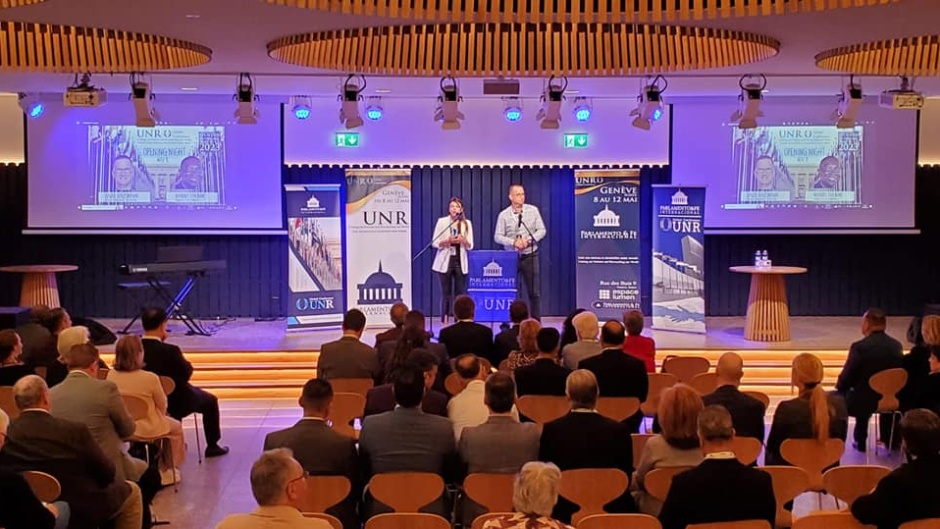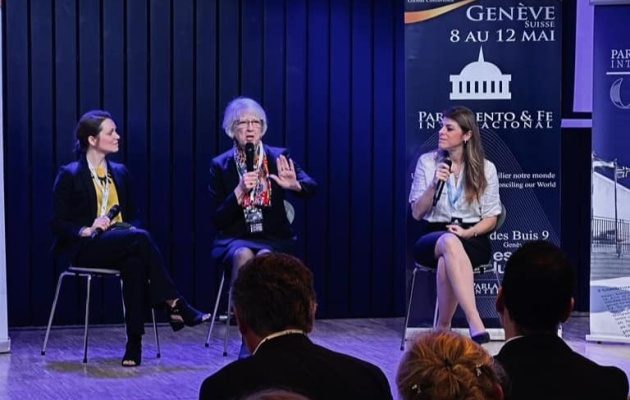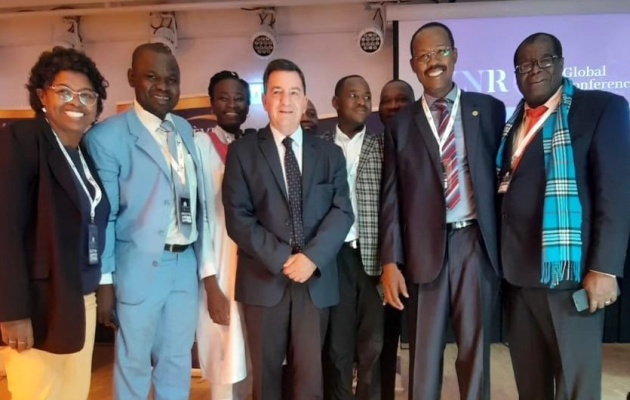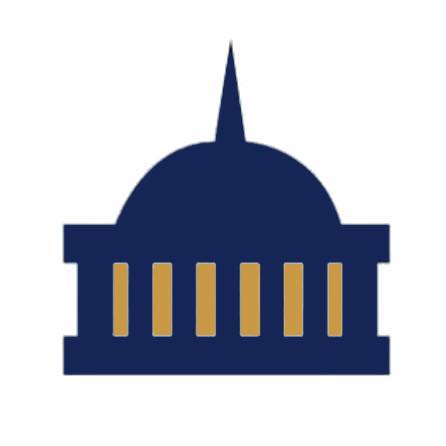Religious freedom, the great forgotten in the 2030 Agenda
For a week, Christian politicians and social actors from 37 countries met in Geneva. A final document delivered to the UN says “discrimination and persecution on the basis of faith” is “absent” from the Development Goals.
Protestante Digital · GENEVA · 15 MAY 2023 · 16:24 CET

Although religious freedom is recognised as a fundamental right, it remains one of the least protected aspects in many parts of the world. This is the reality that a group of Christians involved in politics, social action, organisations and companies who met in Geneva (Switzerland) from 8 to 12 May wanted to highlight.
The UNR Global Conference on Parliament and Faith brought together people from 37 countries who, during those four days, not only received training, but also worked at specific tables to address different issues that have an impact on the world of public affairs.
.jpg)
Photo: Parliament and Faith UNR conference in Geneva, May 2023. At these tables, arguments were presented, strategies were developed and international alliances were forged that should help to address the various situations that currently arise in the field of politics.
“We want to link the motto of this conference, ‘Uniting Nations and Reconciling the world’, to the commitment that every Christian should have to get involved in public affairs”, said Claudio Cingolani, parliamentary undersecretary of the City of Buenos Aires (Argentina) and member of the group Parliament and Faith, the group organising the gathering.
A Christian review of the 2030 Agenda
The meeting examined some of the points of the 2030 Agenda, with its 17 sustainable development goals (SDG) that the UN is promoting worldwide. The development of quality education, combating poverty or care for the environment are some of these goals.

“We started working on religious freedom, because we realised that it is not within the global 2030 Agenda”, explained Claudio Cingolani. “We were at the United Nations, at the Geneva headquarters, to present a document where all the principles and values of the Christian worldview are reflected for each of the Sustainable Development Goals. But we also have the request for religious freedom to be present in this agenda, given that persecution for reasons of faith is commonplace in this world”.
The document, which is available in both English and Spanish, sets out in 12 points how it agrees with some aspects of the Sustainable Development Goals, as well as some of the shortcomings identified in them.
The signatories agree on the need to “combat poverty”, the “preservation of the environment” and the good use of “technological advances”.
The importance of religious freedom
As for religious freedom, the document states that although it is based on the Universal Declaration of Human Rights (art. 18), it needs to be made explicit among the objectives of the 2030 Agenda so as not to be forgotten.
“We want to emphasize the freedom of religion as a pillar that we believe is absent from the established objectives, and we require that it be included in the SDG agenda as a fundamental part of universal human rights. Discrimination and persecution based on faith are a reality for millions of people around our world. When religious freedom, freedom of conscience, and freedom of expression are diminished, democracy is weakened”, the document states.
An international movement
Speakers in Geneva included US Senator John B. Crane; Pamela Russel, a chaplain in the United States; politician Gerardo Amarilla from Uruguay; Connie Duarte from Portugal, Secretary General of the European Evangelical Alliance; and Manny Ohonme, founder of Samaritan's Feet.

“We had workshops, lectures, ministers, mayors, parliamentarians and Christian leaders from all over the world”, added Claudio Cingolani.
The next edition of the global conferences will be held in Uruguay. In addition, the organisation is thinking of launching a conference for under-40s.
Started in Argentina

Parlamento y Fe (Parliament and Faith) was founded by Argentinean Luciano Bongarra in 2008 and is currently active in more than 30 countries.
The organisation, Bongarra explains on its website, “has accompanied men and women in government on their journey, fostering Christian principles and values in them in accordance with the needs of this century, because its desire is to see leaders throughout the world who will transform their nations”.
Published in: Evangelical Focus - europe - Religious freedom, the great forgotten in the 2030 Agenda
Since you are here…
Evangelical Focus is a news and opinion platform that brings together Christians from across Europe and other parts of the world. We need the support of our readers to make this media project sustainable in the long term. You can support our work! Read about Evangelical Focus’s sustainability here.
Would you like to support the work of Evangelical Focus?
Use one of these methods. You can also transfer your donation to “Areópago Protestante / Evangelical Focus” IBAN: ES8521000853530200278394 (Swift / BIC: CAIXESBBXXX). Subject: “Donation Evangelical Focus”
